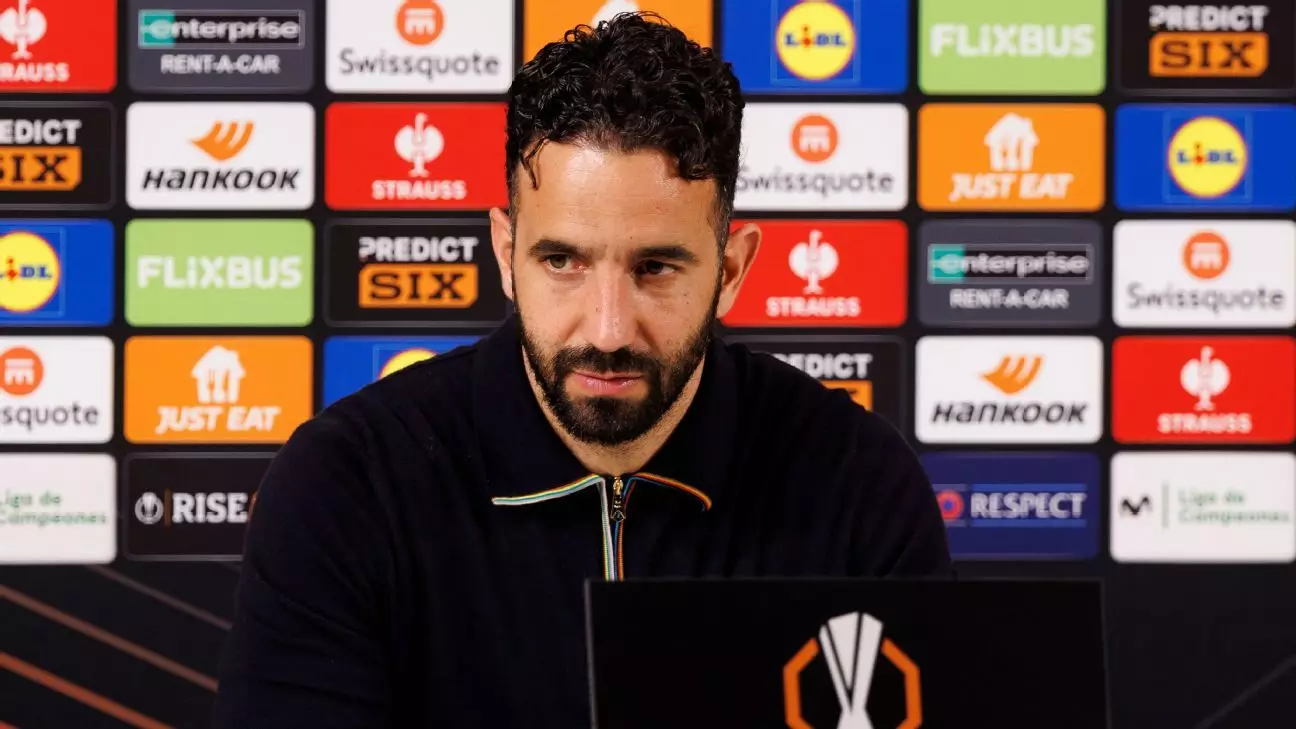In the realm of professional sports, team dynamics are often underemphasized. However, Ruben Amorim’s remarkable decision to fund tickets for 30 Manchester United backroom staff members attending the Europa League final tells a different story. In an era where financial concerns seem to overshadow human elements like camaraderie and loyalty, Amorim’s action serves as a strong reminder of what leadership should look like. It emphasizes the significance of nurturing a supportive environment, especially when the organization’s financial health is frail.
A Stark Contrast to Cost-Cutting Measures
Amorim’s initiative stands in sharp contrast to the current cost-cutting measures implemented by Manchester United’s management. Amid plans to axe almost 200 jobs at Old Trafford, the organization’s decision to ask staff to purchase their own tickets for the imminent final appears cold and transactional. This is juxtaposed with Paris Saint-Germain’s generous allocation of tickets—not just to players but to all associated staff—highlighting the stark disparity in prioritizing human resources versus financial metrics. In a world clamoring for professional sports teams to address broader societal issues, it seems Manchester United is missing the mark.
A Message of Solidarity
What makes Amorim’s decision truly poignant is its underlying message of solidarity. By offering to support his staff financially, he enables them to share the joy and thrill of a monumental occasion like the Europa League final with loved ones. In doing this, he fosters a sense of belonging and unity among his team that transcends mere employment—it cultivates loyalty and wellbeing. This act is especially significant considering that support staff often work tirelessly behind the scenes, making sacrifices that are rarely acknowledged. In a sense, Amorim is not merely buying tickets; he is creating an opportunity for shared memories that can strengthen the collective identity of a beleaguered group.
The Stakes of Sporting Success
The Europa League final on May 21 in Bilbao is not just a game; it symbolizes the ideologies and aspirations of an entire club. With the added prize of Champions League qualification for the victor, the stakes couldn’t be higher. However, at the heart of this competitive fervor lies the intricate interplay of human relationships. By elevating his staff into the spotlight of this significant event, Amorim reveals that the true essence of football lies not only in trophies and accolades but also in the camaraderie and shared experiences that define a season.
Leadership by Example
Amorim’s approach is indicative of a contemporary leadership style that prioritizes emotional intelligence. In a landscape where players and managers are often caught in the spotlight, the value of focusing on those who lay the groundwork cannot be overstated. His willingness to absorb the costs for his team illustrates a profound understanding that a united, motivated support staff can pave the way for athletic successes—something that merely financial strategies cannot achieve. In moments of adversity, Amorim’s actions reflect the ethos of true leadership: prioritizing the people who contribute significantly to a collective endeavor. His compassion may, in fact, serve as the catalyst that propels Manchester United to success on the pitch, illuminating the path to glory.

